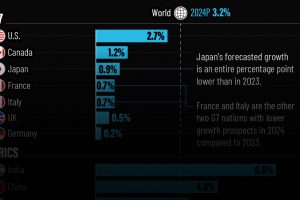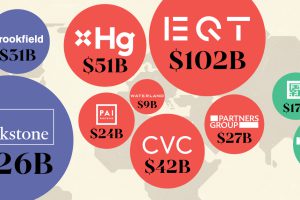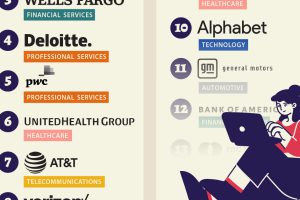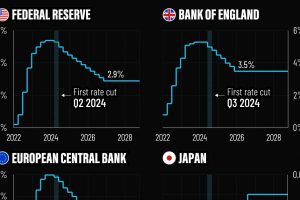What People Think of Globalization, by Country
View the high resolution version of today’s graphic by clicking here.
More than in the past, the population is divided on whether globalization is a force for good or not.
In the aftermath of events like Brexit and the Trump election, it’s clear that there’s a growing movement of people that are skeptical about wider integration into the global economy and foreign cultures. While this countervailing force has always existed, only recently has it become powerful enough to change the outcomes of key elections and referendums.
But how big is this contingent of the population, and how does it differ in size from country to country?
The Survey
Today’s infographic from Raconteur highlights survey data on the topic of globalization for 19 countries.
The survey, published by YouGov just under a year ago, covers international trade, foreign direct investment, and the impact of immigration. Here is the highest level data, which focuses on globalization in general.
Question: “Overall, do you think globalization is a force for good or bad for the world?”
| Country | Force for good | Force for bad | Don’t know |
|---|---|---|---|
| United Kingdom | 46% | 19% | 36% |
| France | 37% | 37% | 26% |
| Finland | 56% | 18% | 27% |
| Denmark | 68% | 15% | 17% |
| Norway | 49% | 23% | 27% |
| Sweden | 63% | 20% | 18% |
| Germany | 60% | 20% | 20% |
| Australia | 48% | 22% | 29% |
| Hong Kong | 63% | 21% | 16% |
| Indonesia | 72% | 13% | 15% |
| Malaysia | 73% | 10% | 17% |
| Philippines | 85% | 7% | 8% |
| Singapore | 71% | 12% | 17% |
| Thailand | 76% | 12% | 12% |
| Vietnam | 91% | 4% | 5% |
| United States | 40% | 27% | 33% |
| India | 83% | 7% | 10% |
| UAE | 69% | 13% | 18% |
| Saudi Arabia | 48% | 18% | 35% |
Note: get the data for all questions directly from YouGov here.
Differing Perspectives
Interestingly, support for globalization ranges from 37% (France) all the way to 91% (Vietnam), representing a very diverse array of attitudes towards the topic.
Based on these 19 countries, at least, the places that feel the most positive about globalization tend to be emerging markets such as the Philippines (85%), India (83%), and Indonesia (72%). These are countries where the pie is getting bigger at a rapid rate, as economies expand from access to increased global capital and trade.
The countries that seem the most skeptical seem to be more developed economically. In the United States, only 40% of respondents saw globalization as a force for good, while 27% saw it as a force for bad and a large portion of the population wasn’t sure (33%). The U.K. and Australia have similar numbers, with the aforementioned France having the lowest portion of respondents saying globalization is a force for good.
Though it’s true that these developed countries are showing skepticism, it’s also clear that the Western world is very split on the topic. European countries like Germany (60%), Denmark (68%), Sweden (63%), and Finland (56%) all saw a majority of respondents in favor of globalization.
This split in opinion is hard to reconcile, and it’s likely part of the reason that so many investors remain focused on geopolitical risk in the current environment.





